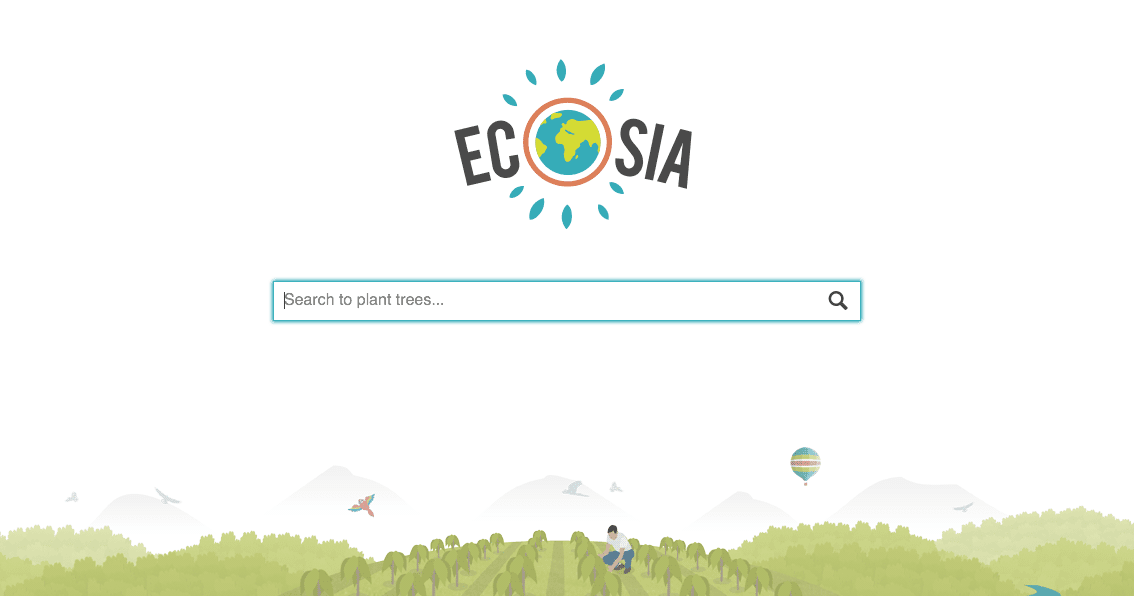

We could probably make a lot more money than we do, but we’ve balanced a privacy-centric, ethical approach with the need to raise funds to plant trees.” Data from that process is then deleted after a week, meaning that we - purposefully - know very little about our users. On a practical level, this prevents you from getting results for restaurants in Berlin, Germany if you live in Berlin, New Hampshire, for example. “General location data is used to increase the relevancy of results on an individual query basis.


“We’re committed to protecting users’ privacy, so there is no profiling of users based on where they are and what they are searching for,” Kroll added. browser type and version and operating system), and settings (such as country and language). That said, given its partnership with Bing, Ecosia does send along more data than some individuals might be comfortable with, such as IP address, user agent string (e.g. It’s definitely worth noting that Ecosia is powered by Microsoft’s Bing search engine. There are the standard web results, with additional options for images, news, videos, and maps. How Ecosia worksĮcosia offers a clean search interface, with a layout not unlike other search engines. These experiences served as the genesis for Ecosia, and in 2009 Kroll moved to Berlin to launch his new project with his sister and a few friends. I also learned what an important role trees play, reducing carbon in the air combating hunger, poverty, and extreme weather systems and restoring biodiversity.” “Whilst I was in South America, I discovered that up to 20% of Co2 emissions can be tracked to deforestation, and that really stuck with me. “In Argentina, for example, you can drive through huge soy farms and not see any signs of wildlife or the thriving ecosystems that were once there,” Kroll continued. On a subsequent journey through South America, Kroll witnessed the devastating impact of deforestation on the environment and local communities. “Even if this didn’t quite work, it did make it clear to me that Google was making a lot of money from its search engine and that there was space in this market for an ethical alternative that used these profits to make the world a better place.” “It didn’t take off, as we only had access to electricity - and therefore the internet - for four hours a day,” he said. He ended up in Nepal, where he tried to launch a local search engine to finance development projects in the region. Like many recent graduates, Kroll elected to travel the world while mulling over his options. But he was certain of one thing: “I knew I didn’t want a run-of-the-mill corporate job.” In fact, the company said it helps plant roughly one tree for every 45 searches, culminating in more than 86 million trees planted to date.Įcosia is the brainchild of Christian Kroll, who, after graduating from the University of Erlangen-Nuremberg in 2007, was unsure what to do with his life. Its unique selling point is that it donates at least 80% of its profits to reforestation projects, meaning every search made on its website or app contributes in a small way to the planting of more trees. Above: Searching with Ecosia in Chrome’s “omnibox” Search and ye shall findĮcosia isn’t exactly a household name, but the German company behind the search engine has been slowly gaining steam over the past 11 years.


 0 kommentar(er)
0 kommentar(er)
